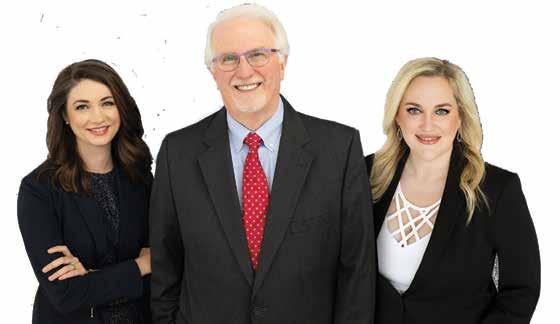austinbar.org
JUNE
2024 | VOLUME 33, NUMBER 5

2024 | VOLUME 33, NUMBER 5
Thank you to the nearly 200 people who came out for the 2024 Bench Bar Conference!
This year’s conference took place at Kalahari Resorts in Round Rock, and featured plenty of members of the bench.
Bench Bar Committee CoChair Scott Brutocao kicked off the morning by introducing Corinne Smith, a life coach and Austin attorney. Smith led the crowd in an icebreaker in which the members of each table shared their best life or career advice in the form of a hashtag. The table voted on who had the best hashtag, and that person then went up on stage to present to the crowd.
Austin Bar President-Elect Mary-Ellen King came up with #stopthestigma.
“As the incoming president of the Austin Bar, I want to make sure everyone knows that it’s OK to ask for help,” she said.
Another table’s hashtag was #itsnotaboutthemistakesyoumake butitshowyoufixthem.
Judge Sylvia Holmes came up with #hideyourjob.
“If you’re looking for a contractor or need work done on your home, don’t tell them you’re a lawyer,” she said. “Your bid will not be what you want it to be.”
Another table came up with #sayless. Perhaps unsurprisingly,
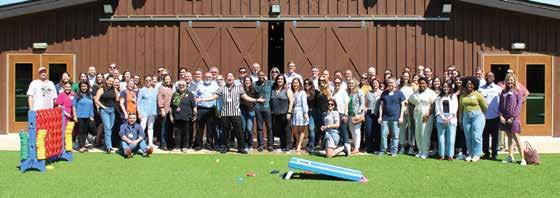
this table was made up of mostly criminal defense lawyers.
One table came up with #cantmakethisstuffup. Another selected #dreamyourlifeliveyourdream.
Zach Wiewel came up with #nosuchthingasaformerclient.
“If you know, you know,” he said.
Other hashtags included #wearsunscreen and, simply, #brevity.
James Parker came up with #dontcompoundamistakewitha crime.
“We all make mistakes,” he said. “When that happens, ask for help and don’t try to cover it up, especially in a criminal way.”
Chase Hamilton came up with #checktherules.
“That seems to be something
continued on page 10

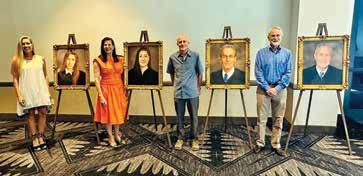
Trusted by 50,000 law firms, LawPay is a simple, secure solution that allows you to easily accept credit and eCheck payments online, in person, or through your favorite practice management tools.





austinbar.org
LGBTQ+ Scholarship Applications Open Applications for the LGBTQ+ Scholarship are now being accepted! Four $5,000 scholarships will be awarded to current students (including 2024 graduates) enrolled at a Texas law school. Visit austinbar.org to access the application form and full list of requirements. Applications close on July 31, 2024.
June 28
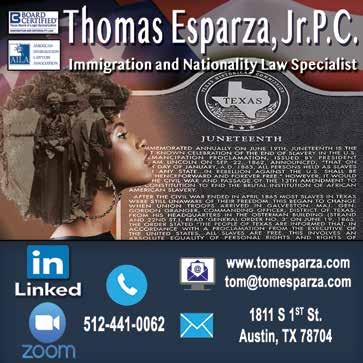
Mentor Lunch with Judge Kimberly Williams Noon – 1:00 p.m. Limited to first 10 registrants licensed 5 years or less. RSVP to delaine@austinbar.org. Register at austinbar.org.

EMAIL billy@austinbar.org MAIL Austin Bar Association 712 W. 16th Street

twitter.com/theaustinbar
FOLLOW instagram.com/theaustinbar
https://www.linkedin.com/ company/austin-barassociation
vimeo.com/austinbar
You wanted a Texas legal malpractice insurance company that’s loyal to its customers. Heck, we’ve been doing that since 1979. It’s in our DNA. You wanted a provider that was committed to building relationships with our members to keep them happy, feeling respected and customers for life. We listened.
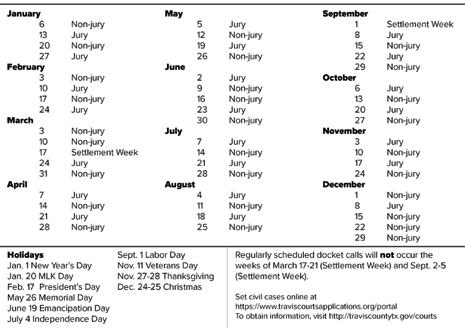










AUSTIN BAR ASSOCIATION
Justice Chari Kelly President
Mary-Ellen King President-Elect
Maitreya Tomlinson Secretary
Judge Maya Guerra Gamble Treasurer
Amanda Arriaga Immediate Past President
AUSTIN YOUNG LAWYERS ASSOCIATION
Sarah Harp President
Emily Morris President-Elect
Jenna Malsbary Treasurer
Gracie Wood Shepherd Secretary
Blair Leake Immediate Past President
Austin Lawyer
©2024 Austin Bar Association;
Austin Young Lawyers Association
EXECUTIVE OFFICES
712 W. 16th Street
Austin, TX 78701
Email: austinbar@austinbar.org
Website: austinbar.org
Ph: 512.472.0279
DeLaine Ward Executive Director
Debbie Kelly Associate Executive Director
Rachael K. Jones Editor-In-Chief
Billy Huntsman Managing Editor
Austin Lawyer (ISSN #10710353) is published monthly, except for July/August and December/January, at the annual rate of $10 membership dues by the Austin Bar Association and the Austin Young Lawyers Association, 712 W. 16th Street, Austin, TX 78701. Periodicals Postage Paid at Austin, Texas. POSTMASTER: Send address changes to Austin Lawyer, 712 W. 16th Street, Austin, TX 78701.
Austin Lawyer is an award-winning newsletter published 10 times a year for members of the Austin Bar Association. Its focus is on Austin Bar activities, policies, and decisions of the Austin Bar board of directors; legislation affecting Austin attorneys; and other issues impacting lawyers and the legal professionals. It also includes information on decisions from the U.S. District Court for the Western District of Texas and the Texas Third Court of Appeals; CLE opportunities; members’ and committees’ accomplishments; and various community and association activities.
The views, opinions, and content expressed in this publication are those of the author(s) or advertiser(s) and do not necessarily reflect the views or opinions of the Austin Bar Association membership, Austin Bar Association board of directors, or Austin Bar Association staff. As a matter of policy, the Austin Bar Association does not endorse any products, services, or programs, and any advertisement in this publication should not be construed as such an endorsement.
Contributions to Austin Lawyer are welcome, but the right is reserved to select and edit materials to be published. Please send all correspondence to the address listed above. For editorial guidelines, visit austinbar.org in the “About Us” tab.
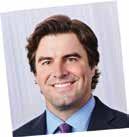


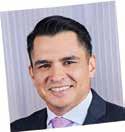


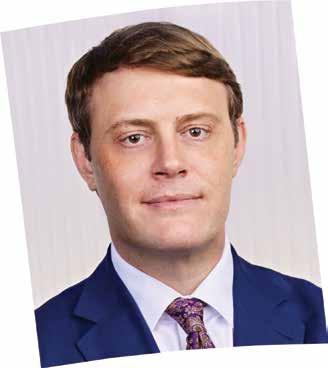



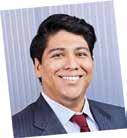




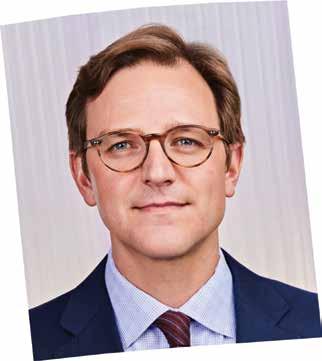
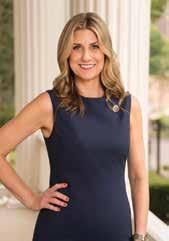
As the bar year ends, I want to thank you for being part of the Austin Bar family. From Bench Bar to the record-breaking Gala, it’s been an incredible year, and we could not have done it without your membership, engagement, and support of our events. I would like to take the opportunity to recognize the many people who worked behind the scenes to make this year’s programming possible.
The Austin Bar Foundation Gala Committee was headed by Nadia Bettac and President-Elect Mary-Ellen King. This year, the Gala raised more than $234,000— a record! Thank you to everyone involved in the Gala’s planning and, of course, thank you to all our generous donors, sponsors, and Fellows. Thank you, also, to Austin Bar Foundation Chair Amanda Arriaga, who spearheaded the initiative to direct this year’s Gala proceeds to DEI-relat-
BY JUSTICE CHARI L. KELLY, THIRD COURT OF APPEALS
ed legal services in Texas.
The Bench Bar Committee planned this year’s incredible conference at Kalahari Resorts. Feedback from attendees has been overwhelmingly positive. A special thanks to the Bench Bar “Fun” Subcommittee, which organized our afternoon break activity, the “Lawyer Olympics.” This event was a perfect way to unwind and get to know each other better (and douse Drew Harris with water balloons).
The Events and Fundraising Committee members planned some of our new family-friendly events. Our inaugural holiday market, “Vendors and Vino,” and our “Pictures with Santa” party at Hilgers House were both great successes. We hope to continue more events like these in the coming years.
The Mentorship Committee started hosting mentor breakfasts and lunches with judges and attorneys in their first five years of practice. This program has been top-rated thanks to the generosity of our local judiciary. Thank you to Judges Maya Guerra Gamble, Jessica Mangrum, and Kimberly Williams, and Magistrate Judge Dustin Howell, for mentoring young attorneys at these events.

The Diversity, Equity, & Inclusion Committee and its Equity Summit Subcommittee put on the fourth annual Equity Summit. Thank you to DEI Committee Co-Chairs Elliott Beck and Leslie Dippel and Equity Summit Subcommittee Co-Chairs Matt Garcia and Ketan Kharod.
The History & Traditions Committee, chaired by Phillip Arnold, initiated the “Past Presidents Project,” which documents the history of the Austin Bar Association through the stories of its past presidents.
And, as always, thank you to the Austin Bar executive committee, the board of directors, and our amazing Austin Bar staff for their tireless work putting on our social and educational programs throughout the year.
And, finally, a special thanks to DeLaine Ward, who this year celebrates her 40th anniversary with the Austin Bar. DeLaine has been instrumental to the growth and success of the Austin Bar, and we would not be where we are today without her guidance and leadership. Thank you, DeLaine!
As the new bar year starts, I want to wish the absolute best of luck to incoming Austin Bar President Mary-Ellen King, as well as
incoming Austin Bar directors Elliott Beck, Sam Denton, Sarah Harp, and Judge Sylvia Holmes. I know they, along with the rest of the executive committee and board of directors, will continue to make our Bar the gold standard for Texas.
It’s been a pleasure to serve as your president. This year I hope that you learned something valuable at one of our programs and had some fun while doing it.
We’re a great bar organization, and as the legal world becomes more virtual, we cannot forget the value of mentorship, camaraderie, and personal connection.
Thank you for a great bar year! AL

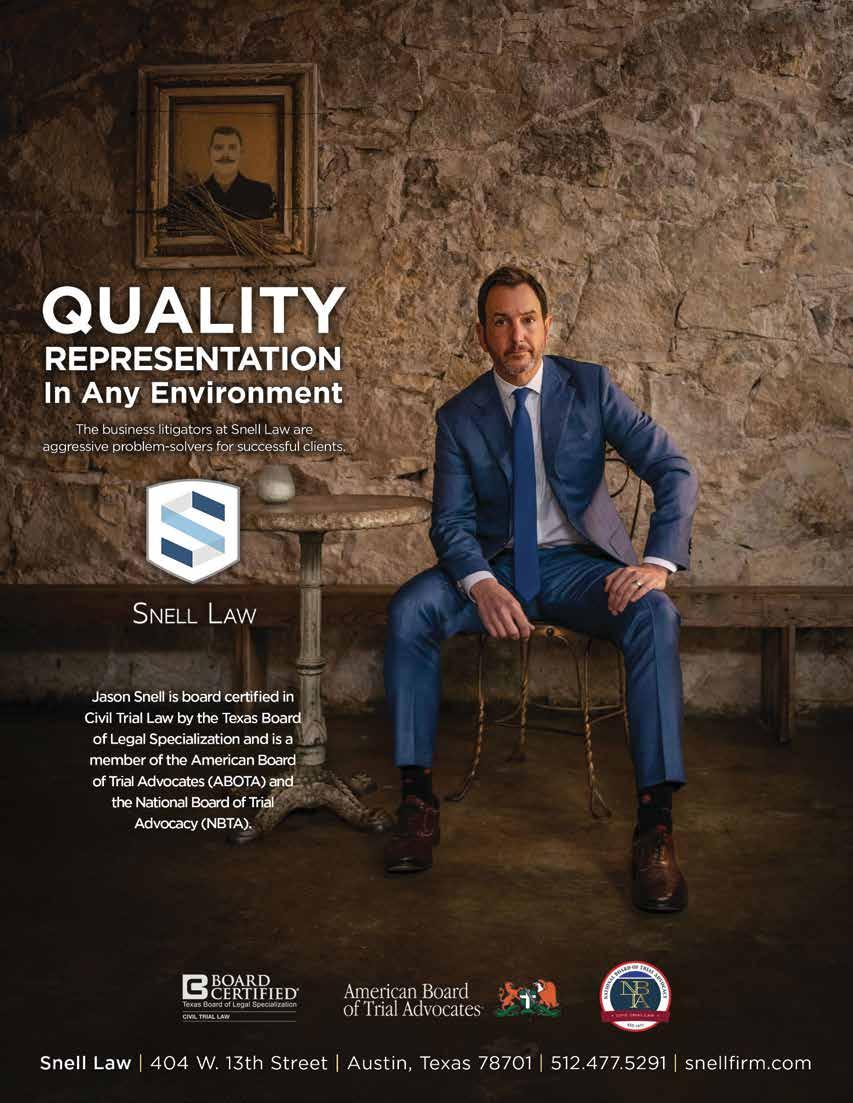
The Austin Bar welcomes the following new members:
Aki Aitsebaomo
Alessandra Beavers
Mike Brunger
Mario Campos
Jill Coon
Kassidy Franks
Emma Lynch
Rylan Maksoud
Francisco Montalvo
Caleb Morrison
Salem Pitch
Dominic Ribaudo
Amrit Sharma
Renee Shiraishi
Kristen Sitchler
JoAnn Torrez
Alejandro Urteaga
Kim Van Winkle
Mark Walker


Congratulations to Natalie Domanic, who has moved to Bollier Ciccone as an associate in the firm’s family law practice. Domanic is a graduate of the University of La Verne College of Law in Ontario, Calif. Domanic has been licensed in Texas since 2020 and is active in both the Austin Bar and AYLA.
Congratulations to Paul Trahan, who has been named co-partner-incharge of Norton Rose Fulbright’s Austin office. Trahan focuses his litigation practice on complex commercial matters in a variety of industries while also advising clients on bankruptcy matters and serious personal injury claims. He has significant jury trial, bench trial, and arbitration experience, handling all aspects of pretrial, trial and appellate work for corporate clients across the country.
Congratulations to Sandy Bayne of BayneLaw. Bayne has been elected as a new board member for 2024-25 for HeartGift, a nonprofit assisting children in obtaining life-saving heart surgery.





Bayne’s practice involves healthcare law, civil litigation, health insurance, and gestational carrier agreements.
Congratulations to retired 261st District Court Judge Lora Livingston, who won the State Bar of Texas Legal Services to the Poor in Civil Matters Committee’s 2024 Judge Merrill Hartman Pro Bono Judge Award. The award honors a sitting or retired judge who has provided exemplary pro bono service, including outreach to attorneys to increase the quantity and quality of pro bono representation; modifications to court processes to increase access to justice; advocacy on behalf of access to justice; service as a volunteer judge for pro bono clinics; or other pro bono proceedings. Judge Livingston’s accomplishments include overseeing the design and construction of the Travis County Civil and Family Courts Facility, which includes a self-help center and law library for pro se individuals.
Congratulations to Gina Shishima, chief strategy and operations partner at Norton Rose Fulbright.
Shishima was recently named one of the recipients of the American Bar Association’s 2024 Margaret Brent Women Lawyers of Achievement Award. The award is named after the first female lawyer in America—a colonist in 1638. Shishima is also a patent attorney who specializes in biotechnology, pharmaceuticals, and medical technology. She received her bachelor’s in biochemistry from Columbia University, her Ph.D. in molecular biology from Princeton, and her J.D. from the University of California—Berkeley.
Congratulations to Leah Stewart of Reed, Claymon, Meeker, Krienke, and Spurck. Stewart recently achieved certification in health law by the Texas Board of Legal Specialization. Stewart was previously the inaugural associate vice president for legal affairs at The University of Texas at Austin Medical School. Stewart is a graduate of the University of Virginia School of Law. After law school, she clerked for the Hon. Emilio M. Garza on the Fifth Circuit Court of Appeals.


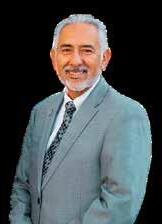



















continued from page 1 everybody should do more often,” he said.
Gabrielle Smith came up with #beconfident.
Ben Evans came up with #maybelookbeforeyouproduce.
“In a recent case, my opposing counsel produced the results of his own client’s cybercrimes
against my client,” he said. “It was very unfortunate for their side.”
Nikki Maples came up with #thinkbigworkhard.
“Don’t limit yourself; don’t be lazy,” she said.
Rachel Rudder came up with #donttakethebait.
“Don’t engage with opposing counsel when they’re being diffi-
cult and petty,” she said.
Josh Romero came up with #justdoit.
“A lot of us suffer from impostor syndrome, which stops a lot of young lawyers from getting in there and trying cases,” he said. “There’s nothing like getting in a trial and slugging it out, and you’re going to be better for it.”
Gilbert Perales came up with #boundaries.
“As a young lawyer, it’s important to have boundaries that clearly define your work life and your home life,” he said. “And it’s also important to set boundaries with clients. Boundaries are good.”
Sam Denton came up with #getinvolved.
“With your children, with your community, with your work,” he said. “It helps everybody and fills your own cup.”
After the morning’s presentations, the afternoon featured the presentation of awards.
The Austin Bar award winners were as follows: Texas Health & Human Services Inspector General Raymond Winter won the Regina Rogoff Award; 345th Civil District Court Judge Jan Soifer
won the Larry F. York Mentoring Award; Manuel Escobar won the Joseph C. Parker, Jr., Diversity Award; and V. Blayre Pena won the Professionalism Award.
For the AYLA awards, Nora Picasso Uvalle won the Outstanding Young Lawyer Award; Hollie Toups won the Liberty Bell Award (which was accepted by her coworkers, Volunteer Legal Services of Central Texas Executive Director Alisa de Luna and Kara O’Shaughnessy); and Sam Denton won the Mentor Award.
After the awards presentation came what was arguably the highlight of the entire day: the “Lawyer Olympics.”
Attendees made their way outside to a large field behind the Kalahari Convention Center, where Jenga, Connect 4, cornhole, and tug-of-war stations had been set up.
There were a total of 18 teams, two of which competed against each other at each station. Every 10 minutes, the teams rotated to new stations. Referees kept score of the winning teams at each station. The referees were Ben Evans, Travis Plummer, Judge
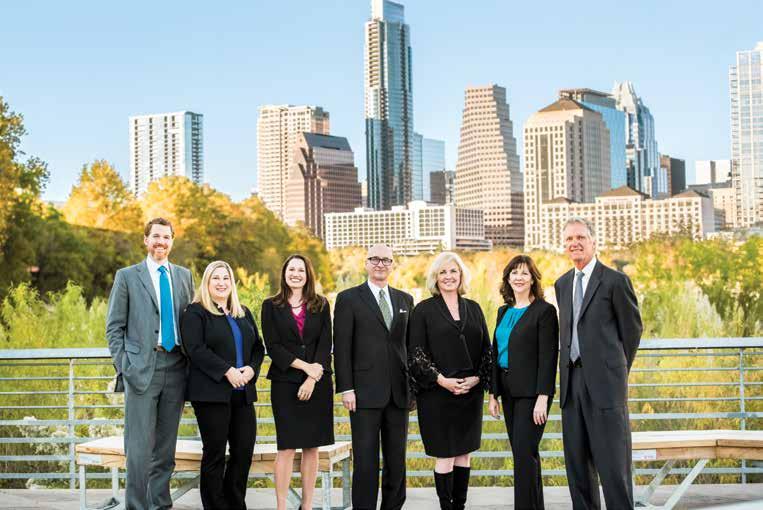
partners:
associate attorneys:
Arielle Rosvall, Coleen Kinsler
Karin Crump, Sara Saltmarsh, Robert Robinson, Judge Elisabeth Earle, Judge Maya Guerra Gamble, Cathy Tabor, and Justice Ed Smith.
The winning teams at each station were difficult to keep track of, but the final round of the “Lawyer Olympics” featured the likes of Judge Jessica Mangrum, Rudy Metayer, Justice Chari Kelly, Maitreya Tomlinson, Judge Jan Soifer, Ben Evans, and Zach Wiewel on one side; and Judge Maya Guerra Gamble, Judge Elisabeth Earle, and Elliott Beck on the other.
These teams took part in a water-balloon-throwing contest in which the gap between throwers grew incrementally wider. Referees Drew Harris, Travis Plummer, and Sara Saltmarsh kept track of how many times a team dropped a balloon to determine the winner.
The final round of the water-balloon throwing featured impressive athleticism from Judge Mangrum, Rudy Metayer, Chase Hamilton, and Elliott Beck. If they hadn’t become lawyers and judges, these individuals might have done well as wide receivers in the NFL. (Or

maybe just the Canadian league.)
Though the team of Judge Guerra Gamble, Judge Earle, and Elliott Beck, among others, ultimately won the water-balloon toss, the real winners were all the participants who pummeled referee Drew Harris with water balloons after the contest had ended. Harris somehow managed to quickly change before proceeding to host the day’s final presentation, on discovery disputes and ethics.
After the conference, participants enjoyed a happy hour sponsored by the Civil Litigation Section, during which the Travis County Courthouse portraits of four former district judges were unveiled: Hon. Gisela Triana, Hon. Darlene Byrne (now Justice Triana and Chief Justice Byrne), Hon. Scott Jenkins (ret.), and Hon. Tim Sulak (ret.).
The Austin Bar sincerely thanks our supporters, who are listed on page 14 of this issue.
We also thank the Bench Bar Committee, consisting of Scott Brutocao, Judge Bianca Garcia, Rob Frazer, and Justice Ed Smith; as well as the Fun Committee, consisting of Caroline Gorman,
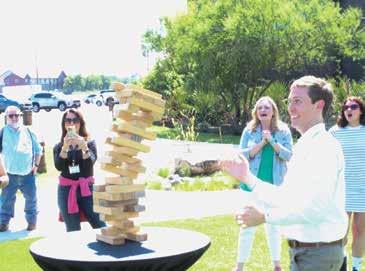
Drew Harris, Sara Saltmarsh, Travis Plummer, Ben Evans, Robert Robinson, Catherine Tabor, and Edward Smith.
Thank you to Howry, Breen & Herman for sponsoring the water bottles, and to Rose Resolution Group for sponsoring the T-shirts. (Hot tip: If you woud like a Bench Bar water bottle and/or T-shirt, drop by Hilgers House to pick
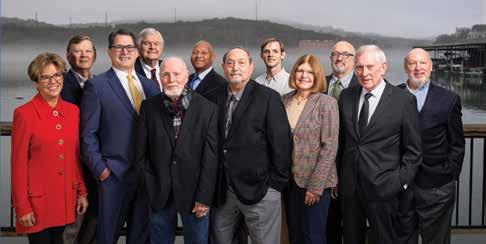
them up).
Lastly, and most importantly, thank you to everyone who attended Bench Bar and made this year such a success. We’re already planning next year’s Bench Bar and can’t wait to share the details with you.
Thank you for your support! AL
Celebrating its 23rd year, Lakeside is proud to welcome Jeff Jury and Tracy Allen, both past presidents of the International Academy of Mediators with decades of experience mediating and arbitrating cases. Collectively, Lakeside mediators have presided over 15,000 mediations and hundreds of arbitrations.
The Austin Bar Association is proud to announce that Austin Lawyer has been named the Best Overall Newsletter for Division III by the State Bar of Texas!
Additionally, the “Decriminalizing Mental Health in Travis County” series was named Best Series of Articles – General Interest for Division III. This seven-part series was published between July 2023 and February 2024 and is available in full on austinlawyeronline.com.
“We want to thank everyone who contributed article(s) or column(s) to Austin Lawyer over the past year,” said Editor-in-Chief Rachael Jones. “This publication would not be possible without you!”
For the 2024-25 bar year, there will be a concentrated effort to recruit more writers and editors for the magazine, said Managing Editor Billy Huntsman.
“As happy as we are with the award from the State Bar, we recognize Austin Lawyer is still representative of only a small fraction of our overall membership,” Huntsman said. “We need more voices contributing to the content and editing it.”
If you have an interest in con-
tributing to Austin Lawyer as a writer and/or assistant editor, you are encouraged to email billy@austinbar.org.
Thank you to everyone who contributed an article or column to Austin Lawyer between May 2023 and May 2024:
• Amanda Arriaga, CASA of Travis County
• Sandy Bayne, BayneLaw LLC
• Elliott Beck, 345th Civil District Court
• Nadia Bettac, Bettac Advocacy and Mediation PLLC
• John D. Boone, Maples Jones PLLC
• Kristiana Butler, Goranson Bain Ausley PLLC
• Lukas Cardenas, Akins High School Student
• Michael Curry, Michael Curry Attorney-Mediator
• Leslie Dippel, Travis County Attorney’s Office
• Lindsey S. Drake, Drake Law PLLC
• Claude Ducloux, Law Offices of Claude Ducloux
• Neal Falgoust, Volunteer Legal Services of Central Texas
• Laura Fowler, The Fowler Law Firm PC
• Matt Garcia, Barnett & Garcia PLLC
• Jillian Garza, Austin Bar Association Intern
• Anikha Guda, UT Austin Student
• Zachary Hall, Third Court of Appeals
• Sarah Harp, Office of the Attorney General
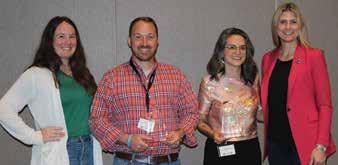
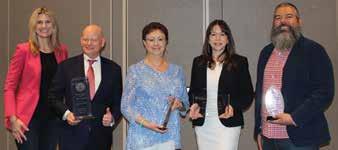








Congratulations to the winners of the elections for the Austin Bar and AYLA boards of directors!
Newly Elected Austin Bar Directors:
Elliott Beck
Sam Denton
Sarah Harp
Judge Sylvia Holmes
Newly Elected AYLA Directors:
Alex Conant
Roslyn Dubberstein
Amy Rodriguez
Jasleen Shokar
The two-year term of office for these directors will begin on July 1, 2024.
• Drew Harris, Office of the Attorney General
• Judge Andy Hathcock (ret.), Travis County Civil District Court
• Stephanie R. Holan, Holan Law PLLC
• Kristen Jones, Center for Child Protection
• Rachael K. Jones, Austin Lawyer Editor-in-Chief
• Debbie Kelly, Austin Young Lawyers Association
• Justice Chari L. Kelly, Third Court of Appeals
• Ketan Kharod, Kharod, Guerrero & White PLLC
• Michelle King, McCreary Veselka Bragg & Allen PC
• Eleanor Klibanoff, The Texas Tribune
• Jason LaFond, Yetter Coleman
• Blair Leake, Wright & Greenhill PC
• Caroline Leal, Botkin Chiarello Calaf PLLC
• Brian Levy, Lynch Law Firm PLLC
• Marc Limsiaco, Texas Trust Law
• Rachel Luna, Luna Law Firm PLLC
• Natalie Lynch, Lynch Law Firm PLLC
• Judge Amy Clark Meachum, 201st Civil District Court
• Judge Orlinda Naranjo (ret.), 419th District Court
• Bonnie Neel, Canopy Mortgage LLC
• Richard Pena, Law Offices of Richard Pena
• Velva Price, Travis County District Clerk
• Steve Puryear, UT Austin Graduate
• Laurie Ratliff, Laurie Ratliff LLC
• Chris Roberts, UT Law
• Tanner Michelle Scheef, Kaplan Law Firm
• Wayne Schiess, UT Law
• Leslie Spatola, Veterans Legal Assistance Program
• Brian Tagtmeier, Pappas Grubbs Price PC
• Texas Lawyers’ Assistance Program
• Justice Rosa Lopez Theofanis, Third Court of Appeals
• Nora Picasso Uvalle, Capital Area Private Defender Service
• Abigail Ventress, VBPena Law
• Zachary B. Wiewel, Texas Trust Law
• Jessica Witte, State Office of Administrative Hearings
• Michael Wolman, UT Communications
Austin Lawyer and the Austin Bar would also like to thank our publisher, Sail House Publishing: President Kim Scheberle, who oversees the production of the magazine; Patty Huber, who solicits advertisers and sponsors; and Kiki Pantaze, who designs each issue. AL







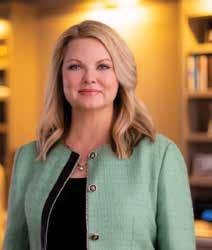







THANKS TO OUR SUPPORTERS!
Enoch Kever
Evans Family Law Group
Germer Beaman & Brown
Graves Dougherty Hearon & Moody
Hendler Flores Law
Jackson Walker
Norton Rose Fulbright
Terrazas
Weisbart Springer Hayes
RedBud Mediation
Scott Douglass & McConnico
Andrae Law
Boulette Golden & Marin
Diggs & Sadler
Judge Todd Wong
Maples Jones
Noelke Maples St. Leger Bryant
Tully Rinckey
Happy Hour sponsored by the Austin Bar’s Civil Litigation Section
Water Bottles sponsored by Howry Breen & Herman
T-Shirts sponsored by Rose Resolution Group

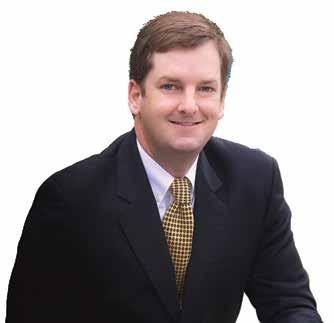
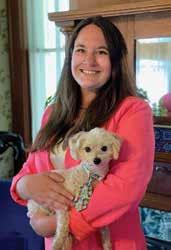
One of the questions I am most often asked when talking to and about the legal community is, “What does AYLA do?” It was the first question my distant cousin asked when I shared the news that I would be president of the organization and it is always the top question prospective members have—and rightfully so, when learning about AYLA. When presented with the question I often find myself sputtering a seemingly hyperbolic response about community because AYLA does so much it is often difficult to formulate an “elevator-speech” type answer. So, in the unfulfillable hope of finally putting the question of, “What does AYLA even do?” to rest, I present to you a list of everything AYLA has done this bar year, as of May 6, 2024, organized alphabetically by committee. If after reading this list you feel the overwhelming urge to heap boundless praise on the 2023-24 AYLA board, to become a sustaining member, to pay for your junior associates to join, or just need to take a nap because it feels like the committee members are vampires who could not possibly have time to work full-time jobs; have families, friends, and pets; put together such a massive amount of quality programming; and sleep: GOOD!
CLE. AYLA provided three freestanding CLEs this year, along with free catered lunches.
BY SARAH HARP, OFFICE OF THE ATTORNEY GENERAL
Ask Not What AYLA Does, Ask What AYLA Does Not Do
The CLEs were as follows:
1. “Helpful Tips and Common Mistakes at the Travis County Central Docket,” presented by Warren Vavra on Oct. 10, 2023;
2. “Discovery 101,” presented by Francesca DiTroia on Dec. 5, 2023; and
3. “Trust and Estate Law Basics,” presented by Melissa Pina on April 9, 2024.
AYLA is also partnering with the Austin Bar to provide three hours of ethics CLE during the “Wine Bus” event on May 31. Community Service Days. This year, AYLA won the second-place Texas Young Lawyers Association (TYLA) Award for Service to the Community for hosting a drive for the Center for Child Protection (CCP)’s Kid Essentials Closet and for spending an evening organizing the closet and putting together essentials kits. For more information on the CCP, please see the AYLA guest column in the December 2023/January 2024 issue of Austin Lawyer.
AYLA also partnered with five other organizations and either volunteered in person or hosted a drive this year. The organizations were: Central Texas Food Bank, YMCA Youth & Government Conference and Mock Trial, Volunteer Legal Services Pro Bono Clinic, Any Baby Can, and the Austin Water Wildland Conservation.
Crawfish Boil. The Crawfish Boil took place on April 6, 2024, in the park across from Hilgers House. The event featured crawfish—no small feat, considering the shortage—as well as shrimp, potatoes, corn, sausage, an open bar, and live music by Tommy Tynes and his bandmates. The event
raised approximately $15,000 for the AYLA Foundation.
Docket Call. This year, the Docket Call Committee organized an open bar happy hour every single month, always taking place on the third Thursday. These Docket Calls took place at various locations all over Austin and were always sponsored by outside companies and law firms. At the time of the writing of this article, nine docket calls have taken place, with three more upcoming events planned.
Freshquires. Freshsquires was a new program this year, partly funded by a grant from TYLA, and is aimed at attorneys who have been practicing 1 to 3 years. This program won the first-place award from TYLA for Service to the Bar.
Freshsquires held monthly CLEs, mentoring discussions, and happy hours. Our first CLE was hosted by the Travis County Court Administrators on “Navigating the Central Docket.” Our second event was a happy hour sponsored by a local company, which over 80 young lawyers attended. Our third event was a CLE with Federal Magistrate Judge Howell on “The Differences Between State Court Practice and Federal Practice.”
Judge Howell provided a unique perspective to the participants, as he has served as both a state and federal judge. Our fourth event was a seminar on “Branding and Business Development” that was led by a panel of leaders from our community: Justice Chari Kelly; Mike Golden, Director of Advocacy at UT Law; Ethan Parker, founder and CEO of Treble; and Alex Conant, co-founder and named partner of the law firm Amini Conant, LLP. The topics included: (1) Balancing networking efforts with other professional responsibilities and commitments; (2) Use of technology and social media platforms as leverage for networking within the legal industry; and (3) Creating a referral network. Our fifth event in April was a wine tasting with several local judges, including Judge Elisabeth Earle, Judge Maya Guerra Gamble, Judge Sylvia Holmes, Justice Chari Kelly, and U.S. Magistrate Judge Mark Lane.
Health and Wellness. The Health and Wellness Committee hosted several successful events during the 2023-24 bar year. In September, the committee assembled a team of superhero
THURSDAY, JUNE 20
AYLA Docket Call Higher Ground 720 Congress Ave. 5:30 - 7 p.m. Sponsored by Weaver
attorneys for the CASA Superhero 5K. In December, members strolled through the Zilker Park Trail of Lights. In February, the committee broke a sweat during a private F45 class. The committee promoted two events in April. First, the Austin Bar/AYLA team participated in the 47th annual Statesman Cap10K. Afterwards, the group focused on relaxation with a “Yoga & Mocktails” event at Hilgers House.
Holiday Program. On Dec. 3, 2023, we partnered with the YMCA to provide a day of fun for children with a magician, bouncy house, games, and snacks while their parents “shopped” for donated gifts.
This year, we sponsored 96 families and 200 children by providing HEB gift cards and toys with the proceeds from our Tailgate event (more information on that below). We were also able to donate two trunkloads of toys to Operation Brown Santa and $700 in gift cards to the Center for Child Protection. A special thanks to David Courreges for dressing up as Santa and Adam Schramek for his magic.
Judicial Reception. On Sept. 21, 2023, AYLA hosted 52 judges at The Austin Club. Hors d’oeuvres such as crab cakes, artisanal grilled cheese with tomato soup, brownies, and cocktails provided sustenance while our members were able to socialize with the judiciary and each other.
Law-Related Education. The Law-Related Education Committee partnered with Texas Supreme Court Justice Brett Busby to introduce “Taming Texas,” a two-part Texas history program designed for middle school students. We presented to several classrooms at Covington Middle School and at Sadler Means Middle School. Local attorneys, judges, councilmembers, and advocates volunteered their time to present to these students and educate them on civility, history, and how Texas courts function.
In addition, the Law-Related Education Committee envisioned, designed, and rolled out a program educating high school students on the rights of survivors of crime, to ensure that (1) they are aware of the community resourc -
es available to them if they should ever become a victim of a crime; and (2) each student can hold our system accountable if their rights are violated in the investigative process. This project was in partnership with Youth Justice Alliance Alumni, and each student left the program with a brochure of community resources.
Leadership Academy. Every year, AYLA and the Austin Bar partner to host the Leadership Academy. The Austin Bar/AYLA Leadership Academy was established to assist Austin-area lawyers in making a difference in our community, serving the Bar, and promoting professional development.
This year’s Leadership Academy has 16 class members. The class had an all-day orientation on Jan. 18, 2024, which included a tour of the Texas Supreme Court followed by a happy-hour social. The speakers at orientation were Justice Debra Lehrmann, District Judge Karin Crump, Justice Chari Kelly, and Pflugerville Councilmember Rudy Metayer.
The class then met monthly for lunch and presentations at various locations. Speakers included Patricia V. Hayes, Kate Lincoln-Goldfinch, Mayor Kirk Watson, District Judge Jessica Mangrum, Mary-Ellen King, U.S. District Judge Robert Pitman, and Chris Mugica.
This year’s class project was a “Night at the Library” event that on May 10, 2024 at the Austin Central Library, to include dinner, a DJ, a silent auction, and a costume contest. As of the time of this writing, it is projected to raise over $15,000, with the proceeds benefitting the Center for Child Protection.
MLK Day of Service. This year’s MLK Day of Service was unfortunately cancelled due to the weather on MLK Day.
The organizations that we had scheduled volunteer events with were: the Austin Animal Center, We Are Blood, and Inside Books Project (to learn more about Inside Books Project, please see the AYLA Guest Column in the March 2024 issue of Austin Lawyer).
The other organizations that AYLA supported by collecting donations and/or sharing their work include: Any Baby Can, the
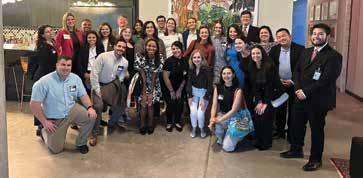
Austin Diaper Bank, FloCode, the Central Texas Food Bank, and the Rainbow Room with Partnerships for Children.
Pro Se Voir Dire Video. This year, we received a grant from the Texas Bar Foundation to produce a video for pro se individuals on how to conduct voir dire. Filming has been completed, and the video will be released soon.
Publications. AYLA published eight guest columns in Austin Lawyer. The topics were: the history of tailgating, first-time home buying,
the Center for Child Protection, the Crown Act, the Inside Books Project, the Myra Clark Gaines case, the need for resources for criminal defense attorneys, and technology for the sight-impaired. Tailgate. On Oct. 28, 2023, we partnered with TexEx Tailgate and hosted a tailgate on the UT campus. Food was catered by Good Bites Food Co. and alcohol was donated by Ben E. Keith. The tailgate raised over $10,000, with the proceeds funding our Holiday Program. AL
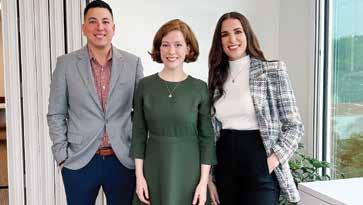
On Tuesday, April 9, 2024, AYLA held a CLE on “Trust & Estate Law Basics,” presented by Melissa Pina, VP, Trust & Estates Officer, Cadence Bank.
The CLE provided attendees with an overview of considerations of which every attorney should have a basic understanding in serving clients. These included the importance of having a will; potential information needed when building an estate plan; and alternatives or additions to a will, such as a trust.
“There are so many situations where attorneys can pick up on a client’s need for future planning, regardless of practice area,” Pina said.
Pina is a graduate of South Texas College of Law. Prior to Cadence Bank, she worked as a staff attorney for Lone Star Legal Aid in Houston.
AYLA would like to thank Melissa Pina for sharing her knowledge with us; McGinnis Lochridge for the use of their space in hosting this gathering; and Vertitext for sponsoring lunch.




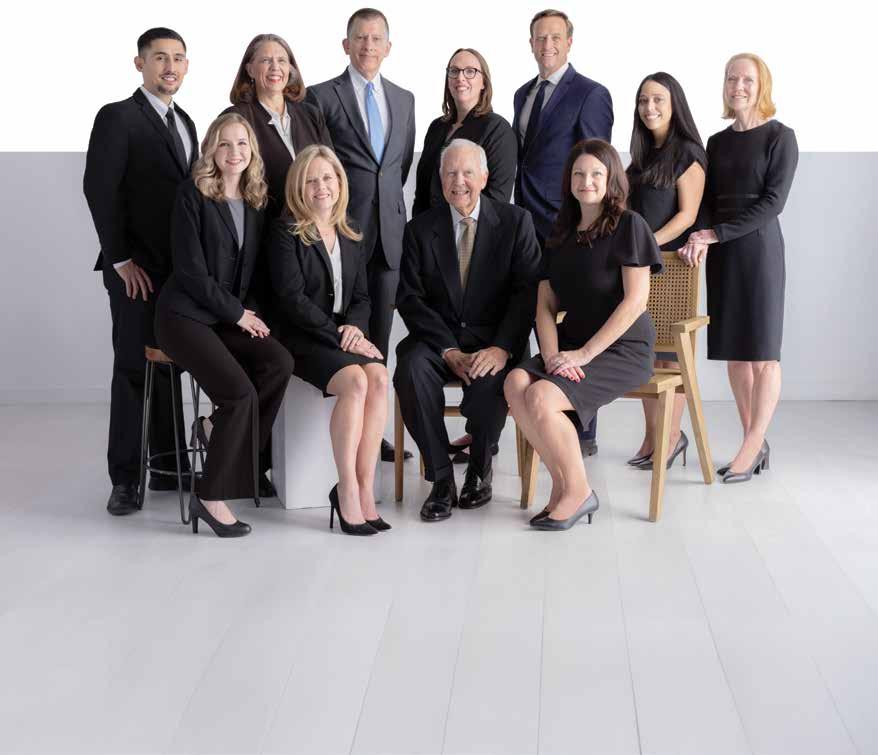
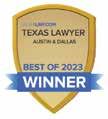

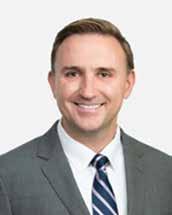
Jason LaFond is a board-certified appellate lawyer with significant experience in the Fifth Circuit. He is a Senior Counsel at Yetter Coleman, LLP.
The following are summaries of selected civil opinions issued by the Fifth Circuit in April 2024. The summaries are overviews of particular aspects of the opinions; please review the entire opinions.
>PROPERTY DAMAGE: Reasonable juror could conclude that impounded groundwater that escaped and flowed over river onto plaintiff’s property remained “surface water” under Texas statute, and that defendant’s negligence proximately caused that result.
Good River Farms, L.P. v. TXI Operations, L.P., 2024 WL 1793049 (5th Cir. April 25, 2024).
Section 11.086(a) of the Texas Water Code forbids “impound[ing] the natural flow of surface waters in this state, or permit[ing] a diversion or impounding ... to continue, in a manner that damages the property of another by the overflow of the water diverted or impounded.” Any person damaged by a violation of § 11.086 may seek damages.
Plaintiff Good River Farms operated a pecan farm across the Colorado River from TXI Operations, a sand and gravel strip mine. On Oct. 30, 2015, during a flood event, a pit of groundwater on TXI’s property breached and sent water flowing across the river onto Good River’s property.
Good River sued TXI for dam-
ages under § 11.086 and for negligence. A jury found for Good River and TXI appealed.
The primary questions on appeal were (1) whether water from TXI remained “surface water” after it crossed the Colorado River, and (2) whether TXI’s negligence in impounding the groundwater proximately caused the damage on Good River’s pecan farm.
The Fifth Circuit affirmed the jury’s verdict in what it called a “close call.”
The court first held that the “surface water” TXI had impounded did not become “flood water” merely because it contacted the Colorado River. Because sufficient evidence showed that the water flowed across and overwhelmed the riverine current, the jury was entitled to conclude the water never lost its character as surface water.
In reaching that conclusion, the Court looked to decisions from Texas’s intermediate appellate courts construing § 11.086. Those decisions distinguished flood water from surface water based on the water’s flow: Flood water flows in some bed or channel in which water is accustomed to flow, while surface water does not follow a defined course or channel and does not gather into or form a natural body of water. Because evidence showed that the water from TXI flowed perpendicular to the river, it could have remained surface water.
In upholding the jury’s verdict on negligence, the Court rejected TXI’s argument that its water’s interaction with the Colorado River broke the chain of causation. The Court found that sufficient evidence established that a breach of TXI’s pit and resulting damage to nearby landowners was reasonably foreseeable. The Court further found sufficient evidence to support a finding that the flood of Good River was directly connected to the pit breach as opposed to some overflow of the river.
CIVIL PROCEDURE: District court erred in relying on new evidence raised in movant’s reply brief without giving nonmovant an opportunity to file a surreply.
Georgia Firefighters’ Pension Fund v. Anadarko Petroleum Corp., 2024 WL 1787927, (5th Cir. April 25, 2024).
Various investors on behalf of a putative class of stock purchasers sued Anadarko and associated individuals for securities fraud. Plaintiffs alleged that defendants fraudulently misrepresented the value of the Shenandoah oil field.
In securities fraud class actions, plaintiffs may show reliance on a defendant’s misrepresentations—and therefore satisfy Federal Rule of Civil Procedure 23(b)(3)’s predominance requirement—by invoking a rebuttable presumption that allows courts to presume an investor’s reliance on any public material misrepresentations if certain requirements are met. Among those requirements are market efficiency and materiality. The defendant may rebut the presumption by demonstrating that the alleged misrepresentation did not actually affect the market price of the stock.
Here, plaintiffs moved to certify a class and invoked the reliance presumption. In support, plaintiffs submitted an expert report to demonstrate market efficiency. In response, defendants argued that the price decrease plaintiffs were suing over was not the result of Anadarko’s disclosures regarding the Shenandoah oil field but an unrelated event—news linking Anadarko to a fatal Colorado home explosion and announcing costly related regulatory requirements.
In their reply in support of class certification, plaintiffs submitted another expert report
purporting to link the relevant decline in Anadarko’s stock price to the Shenandoah oil field.
Defendants asked for leave to file a surreply to address the new expert report. They also filed a motion to exclude the new report. The district court denied leave to file a surreply. The district court also denied defendants’ motion to exclude, in part because the motion relied on arguments made in the proposed surreply.
Relying on the new expert report, the district court certified the proposed class. Defendants appealed.
The Fifth Circuit vacated the class certification and the denial of defendants’ motion to exclude.
The Court concluded that the district court abused its discretion by denying defendants leave to file a surreply. The Court explained that when a party raises new arguments or evidence for the first time in a reply, a district court has two choices: The court may either decline to rely on the new arguments and evidence, or give the other party an opportunity to respond. When a district court does neither, it fatally undermines our adversarial system.
The Court also found that the district court failed to perform a full analysis in considering defendants’ motion to exclude because the district court refused to consider arguments that overlapped with defendants’ rejected surreply. District Courts must apply expert admissibility requirements “with full force.”
The Court remanded so the district court could fully consider the defendants’ motion. AL

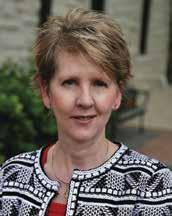
Laurie Ratliff is a former staff attorney for the Third Court of Appeals. She is board-certified in civil appellate law by the Texas Board of Legal Specialization and owner of Laurie Ratliff LLC.
The following are summaries of selected civil opinions issued by the Third Court of Appeals in April 2024. The summaries are overviews of particular aspects of the opinions; please review the entire opinions. Subsequent histories are current as of May 8, 2024.
Court reverses summary judgment, concluding plaintiffs were not trespassers.
Chavez v. Silverleaf Resorts, LLC, No. 03-22-00498-CV (Tex. App.— Austin April 3, 2024, no pet. h.) (mem. op.).
The Chavezes were injured when a Silverleaf cabin’s deck and stairway collapsed. Silverleaf contended the Chavezes were tres -
passers and thus it had no duty to warn or cure.
The trial court granted summary judgment for Silverleaf. Silverleaf contended the timeshare rules limited access to timeshare owners and their under-age-21 children, and that owners could not give others access to their unit when they were not present. Owners made the reservation, checked in, and left, leaving the unit for family members.
The court concluded the timeshare rules did not prohibit owners from allowing others to use their unit and did not require owners to be present. The rules specifically permitted day usage of resort amenities for up to 10 people. Accordingly, Silverleaf failed to establish that Chavezes were trespassers. The court reversed and remanded.
Court reverses jury verdict, holding claims were time-barred.
Palacios v. Palacios, No. 03-2300129-CV (Tex. App.—Austin April 17, 2024, no pet. h.) (mem. op.).
Father established $200k CDs with payable-on-death (POD) designations for his children. After father died in 2013, children received only $100k. Children discovered that father and son Jose’s joint tenancy with right of survivivorship (JTWROS) account received $400k from the POD accounts.
In 2016, siblings sued Jose for unjust enrichment and invoked the discovery rule. The
jury awarded each sibling $100k against Jose. Jose contended limitations barred siblings’ claims.
According to the court of appeals, parties relying on the discovery rule must obtain a jury finding on it or it is waived. Siblings’ cause of action accrued on date father died. Thus, their claims filed in 2016 were barred unless the discovery rule applied. Siblings failed to request a jury question or present evidence on the discovery rule, and thus waived its application. The court reversed and rendered, and affirmed the remainder of the judgment.
DUTY: Court affirms finding of no implied attorney-client relationship.
Williams v. Gottfried, No. 0322-00234-CV (Tex. App.—Austin April 24, 2024, no pet. h.) (mem. op.).
Miller, individually, sued his former employer, using Gottfried as his attorney. Williams’ and Miller’s company, Blackland, paid Gottfried’s fees. Williams later sued Gottfried on behalf of Blackland for breach of fiduciary duty, seeking fee forfeiture. The trial court granted Gottfried’s no-evidence summary-judgment motion. Williams argued the trial court misplaced the burden of proof and thus Gottfried could not file a no-evidence motion.
The court of appeals observed that a plaintiff must prove the breach-of-fiduciary-duty elements, then the burden shifts to the fidu-
ciary to show evidence of fairness. Williams argued that an implied attorney-client relationship existed between Gottfried and Blackland, thus Gottfried owed company a fiduciary duty.
Because Williams knew the litigation involving Miller was a personal matter unrelated to Blackland, no implied attorney-client relationship existed. The court affirmed in part and reversed and remanded.
Court holds expert’s report not conclusory or speculative.
Shrestha v. Johnson, No. 03-2200177-CV (Tex. App.—Austin April 30, 2024, no pet. h.) (mem. op.).
Shrestha treated Johnson’s son for suicidal ideation during a five-day hospital stay. When discharged, Shrestha documented that son no longer had suicidal ideations but failed to meet with the family to discuss son’s condition or further treatment. Son committed suicide the next day. The trial court denied defendants’ objections to Johnson’s expert’s report. The court of appeals noted that an expert report must present a “fair summary” of the standard of care and how it was breached. Expert’s report listed six categories of breaches of the standards of care for a patient with son’s history of attempted suicides. The court held that the report explained the “how and why” of defendants’ alleged breaches that caused son’s death.
The court affirmed. AL

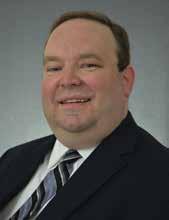
The following is a summary of selected criminal opinions issued by the Third Court of Appeals in November 2023. The summaries are overviews of particular aspects of the opinions; please review the entire opinions. Subsequent histories are current as of May 1, 2024.
BY DEFENDANT: Trial court did not abuse its discretion in admitting evidence of defendant’s pending federal lawsuit filed against county.
Martinez v. State, No. 03-2200207-CR (Tex. App.—Austin Nov. 30, 2023, pet. ref’d) (mem. op., not designated for publication).
Martinez was convicted of the offense of possession of a controlled substance with intent to deliver.
During the punishment phase of trial, the trial court admitted evidence of a pending federal lawsuit that Martinez had filed against Comal County. The lawsuit complained of conditions at the county jail such as “hard” drinking water and lack of adequate heating, and asked for $1 million in damages.
The appellate court found no abuse of discretion in admitting the evidence. The court explained that at punishment, “evidence may be offered by the state and the defendant as to any matter the court deems relevant to sentencing, including but not limited to” the defendant’s character, and evidence is “relevant to sentencing” if the evidence is ‘helpful to the jury in determining the appropriate sentence for a particular defendant in a particular case.”
The trial court could have reasonably concluded that the evidence would be helpful to the jury in determining an appropriate sentence for Martinez. Moreover, the court observed that filing a lawsuit was not necessarily evidence of bad character, and the court had fair assurance that the evidence did not have a substantial and injurious effect or influence in determining the jury’s verdict at punishment.
MOTOR VEHICLES: Defendant’s vehicle was lawfully searched despite five-day delay in executing warrantless search.
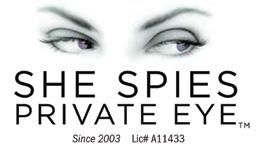

“Information is power, the not knowing is devastating.”
Wilkes v. State, 681 S.W.3d 843 (Tex. App.—Austin 2023, no pet.).
Wilkes was the alleged getaway driver in a series of armed robberies committed at apartment complexes in the Austin area. During one of those robberies, a victim was shot and killed. Officers arrested Wilkes while she and one of the other robbers were in her car at a drive-thru. Officers performed a “vehicle assault,” pinning the car in place with their own vehicles and immobilizing it. The car was towed to a secure location at the police department. Five days later, officers searched itwithout a warrant and found evidence implicating Wilkes in the crimes.
Prior to her trial for capital murder, Wilkes filed a motion to suppress the evidence, arguing that exigent circumstances did not justify the search of the vehicle and that because of the five-day delay in conducting the search, the vehicle exception to the warrant requirement did not apply. The trial court denied the motion and Wilkes was convicted of murder.
The appellate court affirmed. The court summarized the history of the vehicle exception, under which police can conduct a warrantless search of a vehicle if it is readily mobile and there is probable cause to believe that it contains contraband. The exception had historically been justified on the ground that a vehicle can be moved quickly out of the jurisdiction in which the warrant must be sought. However, the exception evolved and grew
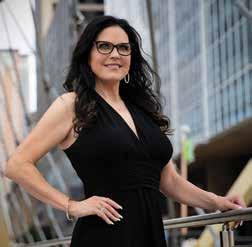
over the years. Later cases have provided a further justification based on the “pervasive regulation” of motor vehicles on public highways.
Under this rationale, individuals now have a much lower expectation of privacy in their vehicles. Additionally, the court explained that the Supreme Court has now clarified that a vehicle’s “ready mobility was an inherent quality and not dependent on the risk of its fleeing before police could conduct a search.” After extensively reviewing the case law, the court concluded that “[i]n light of both the added rationale for the vehicle exception and its express expansion to cover searches of impounded vehicles—including after some period of delay—” higher courts have recognized that the exception now “has no separate exigency requirement.”
The court further concluded that the five-day gap between the seizure and search did not render the search unreasonable. The court explained that there was no requirement that the warrantless search of a vehicle occur contemporaneously with its lawful seizure and that the Supreme Court has found similar delays to be constitutionally permissible. Here, Wilkes had not asserted that she attempted to secure the return of her car while it was impounded, and she did not dispute that probable cause for the search existed or that the vehicle was legally seized. Accordingly, the court concluded that the trial court did not err in denying the motion to suppress. AL


The following are summaries of selected opinions issued by the Texas Supreme Court in May 2024. These summaries are prepared by court staff as a courtesy and are not a substitute for the actual opinions. The summaries are overviews of particular aspects of the opinions; please review the entire opinions.
JURISDICTION: Timely service requirement is jurisdictional prerequisite for suits against governmental entities.
Tex. State Univ. v. Tanner, No. 220291, ___ S.W.3d ___ (Tex. May 3, 2024).
The main issue in this case was whether diligence in effecting service of process is a “statutory prerequisite to suit” under Section 311.034 of the Texas Government Code and, thus, a jurisdictional requirement in a suit brought against a governmental entity.


In 2014, Tanner was injured after being thrown from a golf cart driven by her friend, Scott, a Texas State University employee. Shortly before the two-year statute of limitations ran in 2016, Tanner filed a lawsuit under the Texas Tort Claims Act against the university, Scott, and another defendant. Tanner did not serve the university until 2020, three and a half years after limitations had run.
The university filed a plea to the jurisdiction, alleging that Tanner failed to use diligence in effecting service on the university and arguing that Tanner’s untimely service meant that she had failed to satisfy a statutory prerequisite to suit under Section 311.034. The trial court granted the plea, but the court of appeals reversed.
The Supreme Court reversed and remanded. The court held that the statute of limitations, including the requirement of timely service, is jurisdictional in suits against governmental entities and

that the university’s plea to the jurisdiction was the proper vehicle to address Tanner’s alleged failure to exercise diligence. The court reasoned that diligence is a component of timely service and pointed to its precedent holding that if service is diligently effected after limitations has expired, the date of service will relate back to the date of filing. The court also noted that the statute of limitations for personal injuries requires a person to “bring suit” within two years of the date the cause of action accrues, and it cited precedent establishing that “bringing suit” includes both filing the petition and achieving service of process.
The court went on to hold that Tanner could not establish diligence in service on the university. But rather than render a judgment of dismissal, the court remanded to the court of appeals to address in the first instance Tanner’s alternative legal theory that under Section 101.106(f) of the Tort Claims Act, her service on Scott satisfied her obligation to serve the university.
Real-property interest acquired after Medicaid claim arises does not qualify as “home” for Medicaid eligibility purposes.
Tex. Health & Hum. Servs. Comm’n v. Estate of Burt, No. 220437, ___ S.W.3d ___ (Tex. May 3, 2024).
The issue in this case was whether an interest in real property purchased after a Medicaid applicant enters a skilled nursing facility qualifies as the applicant’s “home,” excluding it from the calculation that determines Medicaid eligibility.




cash assets below the eligibility threshold. They then applied for Medicaid.
The Burts passed away, and the Health and Human Services Commission denied their application after determining that the Burts’ partial ownership interest in the Cleburne house was not their home and therefore was not excluded from the calculation of the Burts’ resources.
After exhausting its administrative remedies, the Burts’ estate sought judicial review. The trial court reversed, and the court of appeals affirmed the trial court’s judgment. The court of appeals held that whether a property interest qualifies as an excludable “home” turns on the property owner’s subjective intent, and that the Burts considered the Cleburne house to be their home.
The Supreme Court reversed and rendered judgment for the Commission. In an opinion authored by Justice Bland, the Court held that under federal law, an applicant’s “home” is the residence that the applicant principally occupies before the claim for Medicaid assistance arises, coupled with the intent to return there in the future. An ownership interest in property acquired after the claim for Medicaid assistance arises, using resources that are otherwise available to pay for skilled nursing care, is insufficient.
The Court observed that federal and state regulations provide that the home is the applicant’s “principal place of residence,” which coheres with the federal statute and likewise requires residence and physical occupation before the claim for assistance arises.
The Burts lived in a house in Cleburne for many years and then sold it to their adult daughter and moved into a rental property. About seven years later, the Burts moved into a skilled nursing facility. At that time, their cash and other resources exceeded the eligibility threshold for Medicaid assistance. Later that month, the Burts purchased a one-half interest in the Cleburne house from their daughter, reducing their
Chief Justice Hecht dissented. He would have held that an applicant’s home turns on the applicant’s subjective intent to return to the house, even if the applicant had not owned or occupied it before admission to skilled nursing care, and that the Burts satisfied that standard. AL
BY VELVA PRICE, TRAVIS COUNTY DISTRICT CLERK
Editor’s Note: A monthly update on jury trials in Travis County will be circulated in Bar Code and posted in the Austin Bar app.
Lucy’s Kitchen #2 LLC v. Taylor Plaza, LLC
Cause No.: D-1-GN-19-006920
Judge: Hon. Jessica Mangrum, 200th Civil District Court
Trial Date(s): April 1 - 3, 2024
Attorneys:
Plaintiff: Russell Frost, Law Office of Russell Frost, PLLC
Defendant: Brian Buster, Hajjar Peters, LLP
Case Summary: Jury found that the defendant failed to comply with the repair obligations under the lease and committed fraud. Jury awarded exemplary damages. Unanimous verdict.
Martin v. Sunbelt Rentals, Inc.
Cause No.: D-1-GN-21-006752
Judge: Hon. Amy Clark Meachum, 201st Civil District Court
Trial Date(s): April 8 - 10, 2024
Attorneys:
Plaintiff: Nicholas J. Testa, The Testa Law Group
Defendant: Spencer E. Dunn, Lanza Law Firm, PC
Case Summary: Jury found that all parties contributed to the plaintiff’s injury in a motor vehicle accident, with a majority of responsibility on co-defendant Lopez. Damages awarded. Not unanimous; 10 jurors for verdict.
Reifslager v. Spruiell
Cause No.: D-1-GN-20-007756
Judge: Hon. Maria Cantu Hexsel, 53rd Civil District Court
Trial Date(s): April 15 - 18, 2024

Attorneys:
Plaintiff: Chris Bell, Braun & Gresham PLLC
Defendant: Darrell Cockcroft, Thompson, Coe, Cousins & Irons, LLP
Case Summary: Jury found that both plaintiff and defendant were responsible for the plaintiff’s injury caused by a motor vehicle accident. Damages awarded. Not unanimous; 11 jurors for verdict.
Chambers v. Shea
Cause No.: D-1-GN-17-002512
Judge: Hon. Maya Guerra Gamble, 459th Civil District Court
Trial Date(s): April 15 - 23, 2024
Attorneys:
Plaintiff: Gary T. Cornwell, The Cornwell Law Firm
Defendant: Eric Dowdy, Hajjar Peters, LLP
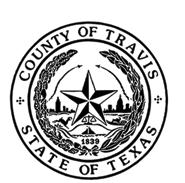
Case Summary: Jury found that the parties had an agreement regarding the Maggie Mae’s pub, and that the defendant failed to comply with the terms of the agreement. Damages awarded. Not unanimous; 10 jurors for verdict.

Vasquez v. Bush
Cause No.: C-1-CV-21-000818
Judge: Hon. Todd Wong, County Court No. 1
Trial Date(s): April 30, 2024
Attorneys: Plaintiff: Gary T. Cornwell, The Cornwell Law Firm
Defendant: Eric Dowdy, Hajjar Peters, LLP
Case Summary: Jury found that the defendant was responsible for the plaintiff’s injuries caused by a motor vehicle accident. Damages awarded. Unanimous verdict.
Short v. Curtner
Cause No.: D-1-GN-21-005985
Judge: Hon. Jan Soifer, 345th Civil District Court
Trial Date(s): April 16 - 18, 2024
Attorneys: Plaintiff: Gagandeep K. Seth, Duke Seth, PLLC
Defendant: Amanda James, Tyson & Mendes, LLP
Case Summary: Jury found that the plaintiff was responsible for the motor vehicle accident. Not unanimous; 11 jurors for verdict.
Pacheco v. HK Propane LLC
Cause No.: D-1-GN-20-004306
Judge: Hon. Karin Crump, 250th Civil District Court
Trial Date(s): April 16 - 19, 2024
Attorneys: Plaintiff: Eoin Tinney, Thomas J. Henry Law, PLLC
Defendant: Matthew R. Gelina, Hartline Barger, LLP
Case Summary: Jury found that all parties contributed to the plaintiff’s injury in a motor vehicle accident, with 90% of responsibility on defendant Lopez. No gross negligence found. Damages awarded. Not unanimous; 10 jurors for verdict.
State of Texas v. Ricardo Vasquez
Cause No.: D-1-DC-21-201455
Judge: Hon. Selena Alvarenga, 460th Criminal District Court
Trial Date(s): April 15 - 19, 2024
Attorneys: Defendant: Juan Antonio and Ricardo Vasquez Lopez
State: Matthew Foye, Travis County DA Office
Case Summary: Mistrial declared on April 19, 2024.
State of Texas v. Deddrick
Amerson Cause No.: D-1-DC-23-900134
Judge: Hon. Julie Kocurek, 390th Criminal District Court
Trial Date(s): April 15 - 17, 2024
Attorneys:
Defendant: Robb Shepherd and J.D. Slaughter, JD Slaughter Law, PLLC
State: Nancy Marie Nemer, Travis County DA Office
Case Summary: Defendant found guilty of murder.
State of Texas v. Jason Latzko
Cause No.: D-1-DC-22-301215
Judge: Hon. David Crain
Trial Date(s): April 22 - 26, 2024
Attorneys: Defendant: Richard Gentry, The Law Office of Richard Gentry, LLC
State: Shannon White, Travis County DA Office
Case Summary: Mistrial declared on April 26, 2024.
State of Texas v. Jesus Beltran Cause No.: D-1-DC-20-900044
Judge: Hon. Brad Urrutia, 450th
Criminal District Court
Trial Date(s): April 22 - 24, 2024
Attorneys: Defendant: Eric Lee McDonald
State: Kim Ahrum, Travis County DA Office
Case Summary: Mistrial declared on April 24, 2024. AL

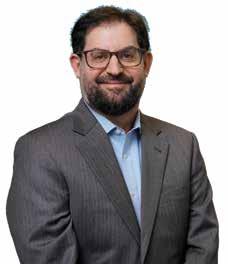



At a January 2024 meeting of the Texas Access to Justice Commission, the commission voted against a recommendation to create a pilot program that would have allowed non-attorney ownership of entities licensed to provide limited legal services to low-income Texans.
The topic of nonlawyer ownership in legal entities has been a topic of growing interest in recent years.
Currently, Texas Disciplinary Rule of Professional Conduct 5.04 prohibits nonlawyers from having any economic interest in entities practicing law.
Many other states have their own versions of this rule.
However, in 2020, Arizona became the first state to eliminate this rule,1 creating “alternative business structures,” or ABSs, to allow lawyers to share ownership of their law firms with nonlawyers.
Also in 2020, the Utah Supreme Court launched a seven-year “regulatory sandbox” or pilot program to authorize nonlawyer-owned entities to provide legal services.2
The Utah Supreme Court’s Office of Legal Services Innovation created categories into which these Utah ABSs would be approved. There is some overlap among these categories, but separately they are:
• Intermediary platform: ABSs in this category connect lawyers with consumers;
• Lawyer employed or managed by a nonlawyer: ABSs in this category are owned or managed by a nonlawyer employing lawyers to provide legal services;
• Lawyers sharing fees with nonlawyers: ABSs in this category involve lawyers providing legal services to consumers and splitting profits with nonlawyers;
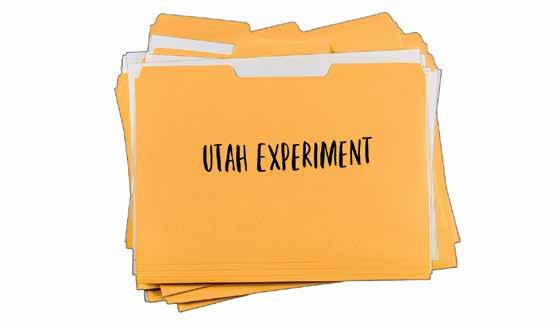
• Nonlawyer ownership: ABSs in this category have no lawyer ownership;
• Nonlawyer provider with lawyer involvement: ABSs in this category provide specified legal services with some kind of lawyer involvement;
• Nonlawyer provider without lawyer involvement: ABSs in this category provide specified legal services without any kind of lawyer involvement;
• Software provider with lawyer involvement: ABSs in this category are primarily technology companies providing legal services through lawyer employees or contractors;
• Software provider with lawyer involvement—legal document completion: ABSs in this category are technology companies providing legal document services through lawyer employees or contractors;
• Software provider without lawyer involvement: ABSs in this category are technology companies that provide legal services without lawyer involvement.
Since 2020, the Office of Legal Services Innovation has released a monthly activity report. According to the most recent available report, from January 2024:
• The office had received 105 total applications for the pilot program;
• The office had authorized 51 entities;
• Six entities had withdrawn applications after authorization;
• Two entities had been suspended or terminated;
• 51 entities are currently offering services; and
• 18 entities reported data in January.
Of the 18 entities that reported data in January, the office categorized seven of them as “low innovation.”
“An entity is categorized as low innovation, and thus low risk, when it uses an alternative business structure involving non-lawyer ownership (ABS) to deliver legal services through licensed lawyers or paralegal practitioners,” the Utah Supreme Court said in a letter to the Utah State Bar.
The remaining 11 entities that reported data in January are cat-
egorized as “moderate innovation.”
“Moderate innovation entities deliver legal services using non-lawyer alternative legal providers (ALPs), including trained non-lawyers or computer software with the ongoing involvement of a licensed lawyer,” the Utah Supreme Court’s letter reads.
Since 2020, the office reports that more than 76,000 legal services have been sought from approximately 24,000 unique consumers. Of these legal services:
• 32,316 had been sought through low-innovation entities; and
• 43,900 had been sought through moderate-innovation entities.
With regard to the delivery of these legal services:
• 62,284 services were delivered by a lawyer, lawyer employee, or a software tool providing document completion; and
• 13,932 services were delivered by nonlawyers with lawyer involvement.
Seven legal categories accounted for more than 92 percent of these legal services, broken down as follows:
• 45.6% – business, such as intellectual property, contracts, warranties, and entity incorporation;
• 17.9% – immigration;
• 12% – military/veterans benefits;
• 5.1% – end-of-life planning;
• 4.3% – accident/injury;
• 1.7% – marriage/family; and
• 1.5% – financial, such as individual bankruptcy and collections practices.
The office assessed the pilot program’s harm-to-service ratio as one complaint per 8,468 services. Since the program’s beginning, the office has received 14 complaints. Only nine of these were harm-related, pertaining to:
• Consumers achieving an inaccurate or inappropriate legal result (2 complaints);
• Consumers failing to exercise legal rights through ignorance or bad advice (3 complaints); and
• Consumers purchasing an unnecessary or inappropriate legal service (4 complaints).
The remaining five complaints either had nothing to do with these three harm categories or were from non-consumers.
Prior to February 2024, the pilot program was on a new authorization hold while the office implemented new safeguards “to exclude bad actors.”
This new vetting process will ensure that entities seeking approval will competently deliver legal services to the public.
“We begin with the presumption that Utah-licensed lawyers are competent to provide legal services and will do so only if they have ‘the legal knowledge, skills, thoroughness, and preparation reasonably necessary for the representation,’”the Utah Supreme Court wrote to the Utah State Bar.3
Based on that presumption, an entity’s risk level may be inversely correlated to the level of lawyer involvement in the entity’s operations: the more lawyer involvement, the less risky the entity, and the more competently the entity might deliver legal services.
With low-innovation entities, “because all services are provided by [Utah] Bar licensees subject to admission standards and the Rules of Professional Conduct,
existing safeguards are sufficient to ensure competence,” the Utah Supreme Court’s letter reads.
With moderate-innovation entities, the Utah Supreme Court proposes the following safeguards:
• The entity’s qualityassurance process must be directed by a Utah-licensed lawyer who oversees the development of the service by developing training materials; supervising education and training; developing scripts/algorithmic models, templates, and/or checklists; and plays an ongoing qualityassurance role by directing regular reviews of services for quality and accuracy.
• The entity must be subject to consumer disclosure and Innovation Office badge display requirements and monthly data reporting, and may be subjected to service audits at the Innovation Office’s discretion.
“High-innovation entities also deliver legal services using ALPs, but they have no consistent, ongoing involvement of a Utahlicensed lawyer,” the letter reads.
To ensure these entities deliver competent legal services, the Utah Supreme Court proposes the following safeguards:
• The entity must identify the specific, limited service that it intends to offer (such as responding to notices of eviction, filing for uncontested divorces, expunging criminal records, seeking domestic violence protective orders, petitioning for name changes);
• Before offering services to the public, the entity must complete a pre-launch service assessment conducted by two independent attorneys with relevant expertise; and
• The entity must be subject to consumer disclosure and Innovation Office badge display requirements and monthly data reporting, and may be subjected to service audits at the Innovation Office’s discretion.
The Utah Supreme Court also wants to implement a way for the Office of Innovation to independently verify entities’ disclosures.
“Currently, a Sandbox applica-
tion requires identification of all ‘controlling persons’ and ‘financing persons,’” the letter reads.
“Controlling persons” are individuals and entities who wholly or partially direct the management or policies of the entity, whether through ownership of securities, by contract, or otherwise. “Financing persons” are persons or entities who wholly or partially (greater than 10 percent) finance the business of the entity.4
Sandbox applications are required to disclose whether any controlling or financing persons have been disbarred or suspended from the practice of law or have felony criminal histories; whether the entity and any parent or affiliated company have a history of state or federal criminal convictions, a state or federal consent decree, a state or federal enforcement action resulting in sanctions, or are subject to a current state or federal criminal investigation or enforcement action.
To give the Office of Innovation the ability to independently verify entities’ disclosures, the Utah Supreme Court proposes ordering
the Office of Innovation to verify that the entity is registered and in good standing with the Utah Department of Commerce.
Further, the Utah Supreme Court’s letter reads, if any financing or controlling person is required to maintain a license, such as attorneys, paralegals, social workers, accountants, or mental healthcare providers, the Office of Innovation will verify that such individuals are in good standing with the relevant licensing agency.
The Utah Supreme Court also wants the Office of Innovation to implement a background check process, under which financing and controlling persons will pay for the cost of background checks by the Utah Bureau of Criminal Identification when the application is filed. Financing and controlling persons must also consent to credit history checks and, if required by the Office of Innovation, submit fingerprint cards.
All financing and controlling persons must also sign a form that
Continued on page 28.

asks whether the person or the entity applicant itself:
• has committed any act constituting material misrepresentation, omission, fraud, dishonesty, or corruption in business or financial matters;
• has engaged in conduct showing incompetence or a source of injury and loss to the public;
• has been convicted by final judgment of a felony, regardless of whether civil rights have been restored;
• has been convicted by final judgment of a misdemeanor, regardless of whether civil rights have been restored;
• has had a professional or occupational license or certificate denied, revoked, suspended, or any other disciplinary action taken;
• has been terminated, suspended, placed on probation, or other disciplinary action taken in the course of employment since the age of 21;
• has been found civilly liable in an action involving misrepresentation, material omission, fraud, misappropriation theft or conversion;
• has been placed on probation or parole;
• has violated any decision, order, or rule issued by a professional regulatory entity;
• has violated any order of a court, judicial officer, or administrative tribunal; or
trative investigations relating to professional competency, unauthorized practice of law, or material misrepresentation, omission, fraud, dishonesty, or corruption in business or financial matters.
Then, the Utah Supreme Court proposes to make all applications publicly available on the Office of Innovation’s website. Before posting, all personally identifying information would be redacted other than the names of all financing and controlling persons; and if the applicant has asserted a Government Records Access Management Act (GRAMA) confidentiality claim for information identified as trade secrets or confidential business information, those portions (other than the names of all financing or controlling persons) would also be redacted.
“The Bar Commission and other stakeholders have asked the Court to hold Sandbox participants ‘to the same fiduciary and professional responsibility requirements to which lawyers are held,’” the Utah Supreme Court’s letter reads.5
While licensed lawyers and paralegals operating in the pilot program continue to be governed by the Rules of Professional Conduct, nonlawyer participants “do not owe similar duties to clients, and many stakeholders worry that those non-lawyers may be incentivized to prioritize profits over a client’s best interests.”
client’s best interests;
• Not allow economic or other conflicts of interests to adversely affect the legal services rendered to a client;
• Ensure that legal services are delivered with reasonable diligence and promptness;
• Not reveal confidential information pertaining to the representation of a client without the client’s consent or as allowed or required by law;
• Not engage in or allow any activity that misleads or attempts to mislead a client, a court, or others;
• Not take any action or engage in activity that interferes with the professional independence of lawyers or others authorized to provide legal services; and
• Develop systems and processes within the entity applicant to ensure that each of the above duties are met and satisfied. If an application is approved, all financing and controlling persons must complete a one-hour
ethics training approved by the Legal Services Innovation Committee, and compliance will be monitored through client complaints, data reporting, and exit surveys.
“A violation of these duties will result in the suspension or revocation of the entity’s authorization to practice in the Sandbox, disqualification of financing and controlling persons from submitting future Sandbox applications, and possible sanctions for violating a Court order,” the Utah Supreme Court’s letter reads. AL
1 https://www.reuters.com/ legal/legalindustry/arizona-approves-five-more-entities-new-legal-business-structure-2021-08-27/.
2 https://utahinnovationoffice.org/ our-history/#:~:text=The%20 Utah%20legal%20regulatory%20 sandbox,the%20provision%20of%20 legal%20services.
3 Utah R. Prof’l Cond. 1.1.
4 Innovation Office Manual, Sept. 29, 2022.
5 Memorandum, The Utah State Bar Board of Bar Commissioners, Dec. 16, 2022.
Austin-NW Hills/Spicewood Canyon area with canyon views. The second floor encompasses seven offices with exterior glass walls, two interior offices, and nine interior cubicle workstations. Amenities include a kitchen, private bathroom with shower, internet/Wi-Fi, large conference room, ample parking, and Avaya phones with direct inward dial numbers. Access to shared conference rooms, copy center (for expense costs), and receptionist/ lobby area. Cost: $1500 per exterior office, $900 per interior office and $300 per cubicle. Contact Frances at fruby@bajb.com Continued from page
• to the best of their knowledge, is the subject of any pending criminal or adminis -
To address these concerns, the Court will require all financing and controlling persons to adhere to the following duties:
• Act in good faith to further a


BY JUSTICE GISELA TRIANA, THIRD COURT OF APPEALS
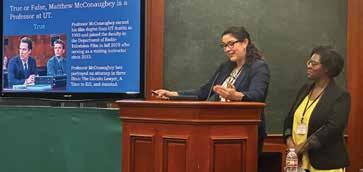
The seventeenth annual Color of Justice program was held on April 16, 2024, at the UT School of Law. The event was sponsored by the National Association of Women Judges (NAWJ), in partnership with the Travis County Women Lawyers Association (TCWLA) and the UT School of Law William Wayne Justice Center for Public Law.
The program was attended by students from Akins, Travis, and Navarro high schools, as well as Burnet and Lively middle schools. Students heard from attorneys and judges and learned about the importance of the legal profession in our society.
After a warm welcome by Judge Karen Sage, president of NAWJ, the event featured a game of “Le-
gal Jeopardy” moderated by Ciara Parks, general counsel for the Texas Board of Law Examiners, and Kim Hidrogo, Assistant Travis County Attorney, followed by two panel discussions with speakers sharing their personal experiences and backgrounds while discussing the importance of personal commitment and perseverance in their roles as lawyers and judges in our community.
The first panel was moderated by Rachel Luna of Luna Law PLLC and featured the following lawyers: Keiko Anderson, Law Office of Keiko Griffin, PLLC; Lee Roy Calderon, University of Texas System; Eliana Maruri, Maruri Law Group; and Alejandra Salas, McGinnis Lochridge.
The second panel featured Justice Gisela Triana, Third Court of

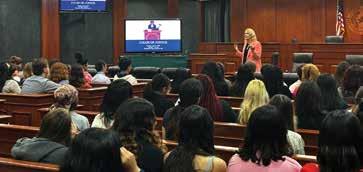
Appeals; Judge Clifford Brown, 147th District Court, Judge Bianca Garcia, Travis County Court at Law No. 3; and Judge Nicholas Chu, Travis County Probate Court No. 2.
Every year, NAWJ awards a $1,000 Access to Justice Scholarship to a student who has demonstrated a commitment to public interest law. Justice Triana presented Ritika Kumar, a 3L student at UT, with this year’s scholarship, based on Kumar’s demonstrated and passionate commitment to public interest law.
In addition, this year, the first Judge Orlinda Naranjo Scholarship was awarded to Rooha Hagharmehdiabadi, a 1L student at UT with just as compelling a commitment. Both students captivated the audience with their
stories of persistence in spite of personal and financial struggles.
Thank you to the sponsors: NAWJ; TCWLA; William Wayne Justice Center for Public Interest Law; Judge Orlinda Naranjo (ret.); Law Office of Keiko Griffin, PLLC; McGinnis Lochridge; Luna Law, PLLC, and to H.E.B. for sponsoring the luncheon for the judges, attorneys, and law students, who sat with the young students and provided opportunities for a more personal connection.
A special thanks to Keiko Anderson, the hit of the morning, who—in her own unscripted Oprah moment—offered individual scholarships to the junior and senior high school students! They, and us, will never forget your generosity and contagious enthusiasm for learning! AL
BY VELVA PRICE, TRAVIS COUNTY DISTRICT CLERK
Judge Clifford Brown, Sylvia Faye Hardman-Dingle, and Dexter Gilford were the honorees at the 2024 Austin Black Lawyers Association Foundation (ABLAF) Andrea Pair Bryant Legacy Luncheon. The trio was honored for their significant contributions to the African American legal community.
Judge Eric Shepperd emceed the event, which was held at Chateau Bellevue. ABLAF President Ayeola Williams and ABLA President Johnathan Stone welcomed and thanked the guests. Velva Price chaired the luncheon. Attendees at the luncheon included many judges from the Travis County Criminal and Civil District Courts, justices from the Third Court of Appeals, and members of the Austin Bar Association’s executive board.
The Legacy Luncheon is named after Andrea Pair Bryant, one of ABLA’s founders, who was always a “woman with a mission” and an iconic figure who held a deep passion for law, the arts and volunteerism.
All funds raised by the luncheon are for ABLAF’s Virgil C. Lott and Heman Sweatt scholarships.
Judge Clifford Brown
Judge Clifford A. Brown was introduced by Gary Cobb, retired Assistant District Attorney and private counsel.
Judge Brown received his B.B.A. in business management & finance from Adelphi University in New York, and earned a J.D. at The George Washington University in Washington D.C.
Judge Brown has worked both sides of the aisle, as both a defense attorney and prosecutor. Upon graduating law school, he served as an Assistant District Attorney with the Bronx District Attorney’s Office in New York
City. In 1993, he entered private practice as a partner in the New York City firm of Jackson, Brown, Powell, and St. George.
Judge Brown and his family relocated to Austin from the New York metropolitan area in 1999, whereupon he worked for the Travis County District Attorney’s Office. He once again began to prosecute the most serious of cases in the district courts of Travis County, such as homicide, aggravated robbery, and child as well as adult sexual assaults.
In 2004, Judge Brown was selected to serve in a newly created position as a Community Prosecutor in the North Central area of Austin, where he served as a liaison working in partnership with various community residents, groups, and organizations, as well as the Austin Police Department, seeking to help facilitate solutions to local problems, thereby strengthening neighborhoods.
In January of 2007, Judge Brown was selected by the City Manager to serve as the City of Austin Police Monitor. This office was the vehicle for citizens to file complaints of misconduct against the Austin Police Department. The office oversaw the investigation of those complaints to provide a sense of transparency to that process, thereby enhancing public confidence and support of the police department.
In November 2010, Judge Brown was elected to serve as judge of the 147th District Court in Travis County. He took the bench in January 2011 and now presides over the most serious felony cases, ensuring that all participants in the criminal justice system are treated with fairness, dignity, and respect. He is presently the Presiding Judge of the Travis County Criminal Courts.
Judge Brown serves as a member of the Deacon’s Ministry at his
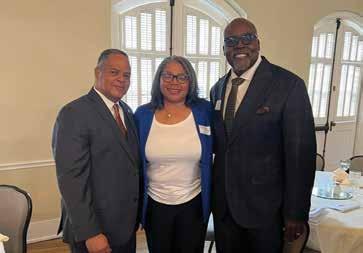
church, Mount Sinai Missionary Baptist Church. He is a past board member and volunteer basketball coach with the Lake Travis Youth Association. In addition, Judge Brown has served as a mentor within the Austin Independent School District.
Judge Brown is a regular facilitator at the African American Youth Harvest Foundation’s monthly African American Men and Boys Conferences. He is a past board member of the National Association for Civilian Oversight of Law Enforcement; is co-chair of the Austin chapter of the “Do the Write Thing” anti-violence and bullying program; is a board member of the Bakari Foundation; and is co-chair of the American Bar Association’s Judicial Function Committee.
Sylvia Faye Hardman-Dingle
Sylvia Faye Hardman-Dingle was introduced by Mary Wolfe, former Associate Commissioner for the Texas Rehabilitation Commission (TRC).
Hardman-Dingle received a B.A. from the University of Michigan and her J.D. from The University of Texas School of Law.
She began her legal career as an assistant attorney general in the tax division. Next, she worked as a staff attorney in the fraud unit of the Texas Department of Insurance, in both civil and criminal law enforcement agencies.
Hardman-Dingle served as the Deputy Commissioner for Legal Services, General Counsel and Ethics Advisor for the TRC from 1998 to 2004, and was the first and only Director of Legal Services, General Counsel and Ethics Advisor for the Texas Department of Assistive and Rehabilitative Services, TRC’s successor agency, from 2004 to 2016. She retired from the State in 2016, after 30 years of service.
After retirement, Hardman-Dingle accepted a temporary appointment as Interim Director of the Office of Police Oversight from 2021 to 2023.
She is a graduate of the Governor’s Executive Development Program, and has served on several volunteer boards and committees, including: the Austin Police Monitor’s Office’s Citizen Review Panel; the Ethics Review Commission for the City of Austin; the Austin Tenants Council;
the Travis County Fee Dispute Committee; the Civil Service Commission for the Travis County Sheriff’s Office; and the State Bar Grievance Committee, where she has served as both a regular member and District Chair.
She is a lifetime member of ABLA, where she has served in the following positions: secretary, treasurer, coordinator for ABLA participation in Volunteer Legal Services, and chair of the Virgil C. Lott Scholarship Committee.
Dexter Gilford
Dexter Gilford was introduced by Rickey Jones, Senior Director at the Travis County District Attorney’s Office.
Gilford graduated from UT Law in 1992 and has practiced law in Bexar and Travis counties for 25 years, aside from the five years during which he returned to graduate school. Gilford has devoted the entirety of his professional career to either the practice or teaching and writing about criminal law and procedure. Although primarily a trial lawyer, Gilford has represented scores of clients in transactional matters, criminal investigations, and administrative proceedings.
Gilford began his career as a prosecutor with the Bexar County District Attorney’s Office. In 1995, he went into private practice. Gilford was a solo practitioner in Austin from 1995 until 2013, limiting his practice to the defense of criminal cases in both state and federal courts. He tried cases involving charges ranging from class A and B misdemeanors to felony capital murder charges carrying the death penalty at a time when local Travis County juries were known to return death verdicts. By trial or plea, none of Gilford’s capital defendants were sentenced to death.
In 2005, Gilford was awarded Criminal Defense Lawyer of the Year by the State Bar of Texas, after securing the acquittal of a young man he continues to believe was wrongfully accused of capital murder. During this period, Gilford proudly maintained membership in the State Bar’s Texas Bar College and Pro Bono College.
Gilford has served as a direc -
tor of both the Austin Criminal Defense Lawyers Association and the Texas Criminal Defense Lawyers Association.
From 1999 to 2013, Gilford was a member of the National Association of Criminal Defense Lawyers and the National Board of Trial Advocates.
Gilford is board-certified in Criminal Law and was recognized as a Criminal Trial Specialist by the National Board of Trial Advocacy. During this period, Gilford was a frequent presenter at CLE seminars to criminal practitioners both locally and statewide.
Gilford also served as a Commissioner for the Civil Service Commission for the Travis County Sheriff’s Office.
In 2012, Gilford took a hiatus from the practice of law and returned to San Antonio to care for his mother prior to her death, while also pursuing a graduate degree at Our Lady of the Lake University. While doing so, he taught criminal law and related courses locally at the community college and university levels.
In Gilford, Dexter was invited to return to the practice of law and joined the Travis County District Attorney’s Office as the director of the Office’s newly formed Civil Rights Unit, which is responsible for the investigation and prosecution of law enforcement cases involving allegations of the unlawful use of force.
Gilford has served in this capacity since 2017.
Gilford is the father of four children—Anicet, Talai, Ayo, and Kali—whose ages range from 8 to 29, and two grandchildren.
Judge Harriet Murphy
Judge Yvonne Williams also gave a heartfelt tribute to Judge Harriet Murphy, one of ABLA’s founders, who recently passed at the age of 96.
Judge Murphy was born in Atlanta, Ga. on June 6, 1927. She received her bachelor’s degree from Spelman College, master’s degree from Clark Atlanta University, and law degree from The University of Texas School of Law in 1969.
In 1973, she was the first African American woman appointed to a regular judgeship in Texas,
and served on the City of Austin Municipal Court for twenty years. Before joining the municipal court, she was in private practice and served as the head of the government department at Huston-Tillotson University.
Judge Murphy was a charter member of organizations including the Austin Urban League, ABLA, and the Travis County Women Lawyers’ Association.
Judge Murphy was inducted into the National Bar Association’s Hall of Fame in 2010. The National Bar Association also awarded her the Raymond Pace Alexander Award in 2005 and the Gertrude E. Rush Award in 2003.
She was the recipient of the first ABLA Legacy Award in 2010, and received from The University of Texas the first Thurgood Marshall Legal Society Award and the Yellow Rose of Texas Award.
The ABLAF especially thanks the following sponsors for such a successful event:
TRAILBLAZER
Gary Cobb
PIONEER
Austin Bar Association
Criminal Court Administration
Hon. Jose Garza
Sylvia Hardman-Dingle
Lloyd Gosselink
Justice Chari Kelly
Hon. Velva L. Price
MENTOR
Justice Thomas Baker
Judge Jessica Mangrum
Jaustin Ohueri
Gabrielle Smith
Judge Jan Soifer
LEADER
Judge Selena Alvarenga
Judge Carlos Barrera
Cassandra Charles
Judge Karin Crump
Judge Laurie Eiserloh
Michael Fallings
Robynn Fletcher
Justice of the Peace Raul Gonzalez
Mary Henderson
Judge Catherine Mauzy
Rose Ann Reeser
Judge Tim Sulak
Manfred Wellington
Justice of the Peace Yvonne
Williams
Hon. Todd Wong AL
To celebrate Women’s History Month, the Austin Bar Association’s podcast, Council of Firsts, featured the “Ladies of the Austin Bar.”
For the first time in history, all top leadership positions in the Austin Bar Foundation, Austin Bar Association, and Austin Young Lawyers Association are held by women, with women waiting in the wings.
Amanda Arriaga is the Austin Bar Foundation chair, Justice Chari Kelly is the Austin Bar pesident and Foundation chairelect, Mary-Ellen King is the Austin Bar’s president-elect, Sarah Harp is the AYLA president and Emily Morris is the AYLA president-elect.
Tune into this very special episode of Council of Firsts and learn why you should get involved and why it is important to continue to support
women in these leadership roles.
In addition, Council of Firsts celebrates its one-year anniversary this April.
The podcast has previously featured amazing women like: Velva Price, Betty Balli Torres, Justice Gisela Triana, Judge Lora Livingston, Judge Orlinda Naranjo, Caroline Hall, Judge Selena Alvarenga, Judge Maria Cantu Hexsel, Maria Amelia Calef, Sherine Thomas, Betty Blackwell, Ciara Parks, Elizabeth Rogers, Judge Dimple Malhotra, Susana Aleman, Judge Hilda Tagle, Commissioner Cristi Craddick, Dominique McLeggan-Brown, Carly Murray Gallagher, Ana Vieira Ayala, Nadia Bettac, Linda Garza, Adrienne Waddell, Judge Daniella Deseta Lyttle, Amber Russell, Kathy Richardson, Jennifer Ahrens, Liz Cantu and Toya Bell.
You can catch all episodes of Council of Firsts on YouTube, or
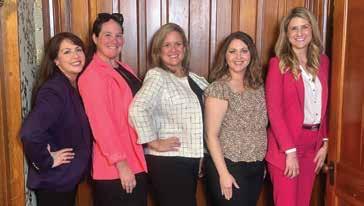
anywhere you get your podcasts. The Austin Bar Association will also be launching a new podcast, hosted by President-Elect Mary-Ellen King, which will focus on overcoming the stigma of mental health and substance use disorders in the legal profession.
This is part of King’s overarching theme as president of the 2024-25 bar year. More information about this new podcast will be released soon.
We hope you’ll listen and, of course, continue to support Council of Firsts! AL
*Kimberly A. Edgington kim@whitten-law.com
Tim Whitten has practiced in family law since 1992. He has been certified as a Family Law Specialist by the Texas Board of Legal Specialization.

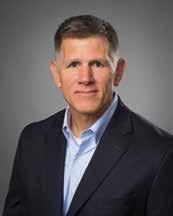



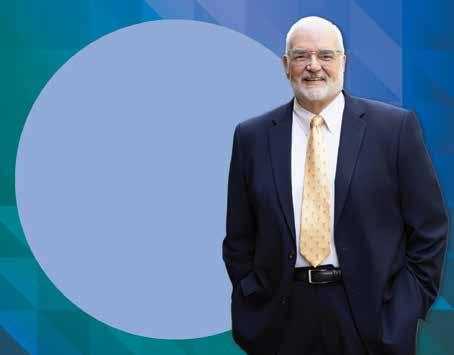

BY CLAUDE DUCLOUX, LAW OFFICES OF CLAUDE DUCLOUX
One of the great honors that I have had over the past 13 years is to work as the Director of the State Bar’s Advanced Trial Strategies (ATS) course. This elite course, given in New Orleans each February, is designed for lawyers with 20+ years’ experience. Our committee’s aim is to get the best speakers, to bring important information to the attendees, and to make the entire experience relevant to the modern, practicing trial lawyer.
Moreover, this sold-out crowd believes in jury trials. Having 12 unbiased citizens discuss and make decisions is still a reliable way to serve justice. But finding what Jason Bloom, a Dallas Jury consultant, refers to as “persuadable” jurors is admittedly getting harder.
Our pursuit of justice is hobbled daily by the multitude of divisive opinions held by the public. As we increase our reliance on social media and hopelessly inaccurate sources for our opinions, our collective use of the truth disintegrates. The sheer breadth of misinformation poses a problem for jury selection. Ahh, so little time, so many deeply held delusions.
Thus, one of the most interesting discussions we had during our February 2024 ATS course was the importance (and often indispensability) of a carefully crafted jury questionnaire to identify the commonly held beliefs and misbeliefs of the members the venire panel. The skill it takes to draft a meaningful and useful questionnaire requires one to know technical knowledge; pop culture; psychological concepts like naïve realism, false consensus, selective attention, bias and prejudice; and what Germans call zeitgeist: the current schools of thought influencing our society.
If nothing else, we need to eliminate jurors who strongly evince that innate human need for predictability, a need which psychologists say often leads people to

make false assumptions and decisions based upon pure ignorance, superstitions, stereotypes, if not mere inklings. You’ve met them. Their decisions start witH, “I got a feeling … .” At our ATS course, Robert Hirschhorn and Lisa Blue gave us entertaining insight on those issues.
Fortunately for you, my esteemed colleagues, I possess such a combination of skills, as well as a sturdy internet connection, which supplies me with enough zeitgest to toggle seamlessly between Taylor Swift and Newsmax. I can absorb the latest updates on The Bachelor, and Netflix’s latest mega-hit, The House of Boogers, and to be able to both withstand the whimsical fiction of Fox News, and endure the numbing repetition of CNN. Perhaps I should not share this advanced skill with you, as few of you have taken my preparatory course in modern zeitgeist,
called “Could We Get Any Worse?” which is simply a compilation reel of the election of Mike Johnson as Speaker and the Paxton Senate debacle. Nevertheless, many of you may be choosing a jury soon, and sharing these ideas will no doubt help you identify Texans with odd, unsupported, fantastical and hypocritical positions. Now, if you’re willing to wait, you can study that for free during the next legislative session. But that doesn’t start until next January. So, this brief amuse-bouche will have to do, and I know your sharp minds will see how the questionnaire combines all of the relevant factors that you would want to know about your potential jurors. So, let’s get started.
Now, of course, I realize that we have eliminated any need to study bias and prejudice in our advanced culture in Texas, so our jury ques -
tionnaires will be so much shorter. (After all, you don’t want to be prosecuted for asking if someone believes in diversity do you?) So, consider this cutting edge.
My primary source of news is: q Q-Anon
q The Daily Show q Network news
q Facebook
q People tell me stuff
My favorite TV personality is: q Lester Holt
q Wolf Blitzer
q Tracy Gallagher
q Homer Simpson
q Hoss Cartwright
Pick your favorite war hero: q Jack Reacher
q John Rambo
q Luke Skywalker
q Col. Cofefe
q Mitch McConnell
What color is Kim Kardashian’s hair this week?
In your opinion, did The Bachelor make the right decision giving Brooklyn the rose last week rather than Tiffany?
The greatest benefit you enjoy in your daily life is:
q Immediate access to the internet
q Access to a wide variety of technology
q Streaming services
q Cool Ranch Doritos
According to your favorite TV show, the biggest problem facing our country is:
q Immigration
q Failure to timely choose a Social Security Advantage Plan
q Global conflict
q Zombies
q Soap film
Choose two of these adjectives to describe yourself:
q Parsimonious
q Lugubrious
q Anepigraphous
q Diaphonous
q Prognathous
Personal style (short answer):
q Wearing pants on Zoom?
q Pajamas to Home Depot?
q Wordle or Connections?
q Prius or pickup?
q Cat or dog?
If you were selected for trial, how long can you stay off your cell phone?
q 10 minutes
q 2 hours
q 4 hours
q What is “staying off your cell phone”?
Who created the Novel Covid-19 Coronavirus?
q Scientists in Wuhan, China
q Dr. Fauci
q Big Pharma
q Denny’s
Congratulations. This is just your starter questionnaire, of course. In my advanced course, we’ll get into education, special skills, hypocrisy, logical disconnect, and student-loan relief. In the meantime, and silli-
ness aside, please remember that whether we like it or not, this profession, and our solemn dedication to the rule of law, is unquestionably the single most important firewall between those who are willing to give liars and frauds a pass, and our professed duty to pursue truth, and maintain the courage to always seek justice. We’re on a bubble. Don’t give up.
And just in case, I’m pretty sure you can buy a few more peremptory strikes on Amazon. Keep the faith. AL

